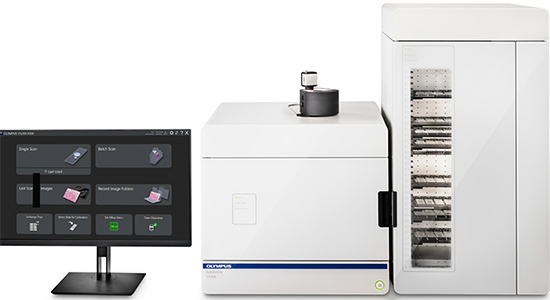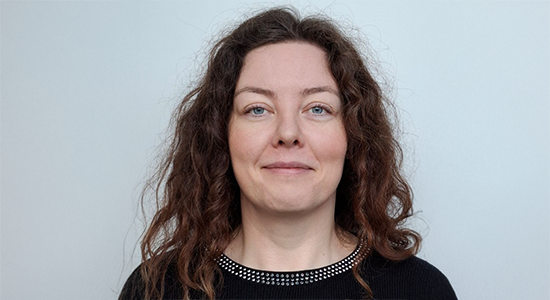Histology and Microscopy

The Histocore facility, a collaboration between BRIC at Copenhagen University and The Finsen Laboratory at Rigshospitalet, plays a crucial role in advancing both academic and industrial research.
As part of the diverse array of core facilities at BRIC, our histocore provides services to various research institutes within Copenhagen University, research groups across hospitals, external clients from the medical and pharmaceutical industries.
Our facility offers comprehensive histology services, delivering extensive expertise in the field to support a wide range of research needs. We are committed to innovation, frequently collaborating with medical companies to test new methods, setups and drugs.
Depending on the analysis requirements from the costumer, various stains can be applied, including immunohistochemical stains, using the fully automated Bond Rx stainer. The BRIC histology core facility offers a variety of services to help you with your IHC or immunofluorescence (IF).
The histocore facility is contacted by email or through PPMS (for BRIC personal) and an initial meeting is being held conducting a project overview. Afterward a request sheet is filled out, with all information regarding the project egg information on sectioning, various stains or software analysis.
Please see workflow, pricelist and equipment catalogue for specific service/instrument.

Tissue Collection
The process begins with the collection of tissue samples, typically preserved in a fixative solution within a container. This step ensures the preservation of tissue morphology and prevents degradation.
Tissue Processing
The fixed tissue is then processed using an automated tissue processor. This machine dehydrates the tissue by passing it through a series of alcohols and clears it with a solvent e.g. tissue clear, preparing the tissue for embedding.
Tissue Embedding
After processing, the tissue is embedded in paraffin wax using an embedding station. This step solidifies the tissue into a block, which can easily be sectioned for microscopic examination.
Microtomy
The paraffin embedded tissue block is then sectioned using a microtome. Thin slices of the tissue, usually 3-5 microns, are cut and placed on microscope slides for staining.
Staining
Tissue slides are stained using, for example, an automated staining machine for Hematoxylin and Eosin (H&E) to highlight various tissue components.
Depending on the analysis requirements, additional stains can be applied, including immunohistochemical stains, using the fully automated Bond Rx stainer.
For simultaneous detection of multiple proteins, fluorescence Multiplex is required, such as assays from SignalStar™, which allows fully automated analysis up to 8-plex.
Additionally, RNAscope can be used if the project aims to examine RNA levels, with the possibility of co-detecting both RNA and protein.
Imagining, Quantification and Reporting
After staining, the slides are analyzed using a microscope, often equipped with imaging capabilities. We use the digital slide scanner Nanozoomer, for whole slide imaging.
The final images and data from the stained sections are analyzed and interpreted using Visiopharm software, specifically Visiopharm’s AI-powered image analysis platform.
The results are documented in a report, which is used for diagnostic or research purposes.
Service based
The BondRx can be used for complete IHC, RNAScope, FISH, multiplexing and other tests.
For immunohistochemical stainings you need to consider the following:
- Pretreatment
- Antibody concentration
- Secondary antibody
- Detection system
Manufacturer: Leica

The final images and data from the stained sections are analyzed and interpreted using Visiopharm software, specifically Visiopharm’s AI-powered image analysis platform. The results are documented in a report, which is used for diagnostic or research purposes.

Automated HE stainer ensures repeatable HE stainings of high quality.
Manufacturer: Epredia

For tissue processing.
The tissue must be fixated in PFA in 24 hours, thereafter kept in 70 % ethanol. Bring samples to cupboard in room 3.3.42.
Manufacturer: Leica
Access: Service based

For Antigen retrieval, defalcification.
Manufacturer: Milestone
Access: Service based
Manufacturer: Dako
Access: Service based

Access based
The following instruments are access-based instruments, which can be booked and used after thorough training from histocore personnel.
The SLIDEVIEW VS200 system offers high-resolution and high-throughput slide scanning for advanced research applications, such as neuroscience, cancer and stem cell research, and spatial biology.
With the flexibility of five imaging modes, multiplexing capabilities, and multiple magnifications, the system delivers outstanding image quality for quantitative analysis.
Manufacturer: Olympus

Manufacturer: Hamamatsu

Model: HM 355S Automatic Microtome
Manufacturer: Thermo scientific
Model: HM 355S Automatic Microtome
Manufacturer: Microm
Model: RM2255 Fully Automated Rotary Microtome
Manufacturer: Leica
Model: SM2000 R Sliding microtome
Manufacturer: Leica

Manufacturer: Leica

Manufacturer: Sakura

For incubating slides, before staining.
Manufacturer: Buch & Holm
Prices
| Institute | Price |
| UCPH internal | 500 DKK |
| Industry | 1400 DKK |
| Min cost | 15 min |
| Visiopharm software | Price |
| Access based use | Write email for estimated price |
| Service based use | Write email for estimated price |
| Consumables | Price |
| HE staining | 125 DKK pr basket |
| Microtomeblades | 30 DKK pr unit |
| Slide | 2,5 DKK pr unit |
|
IHC/IF/RNAScope |
Write email for estimated price |
NanoZoomer-XR Digital slide scanner C12000-01 – Hamamatsu
| Institute | Price pr hour |
| UCPH internal 9-16 | 150 DKK |
| UCPH internal 16-9 | 100 DKK |
| Industry all day | 200 DKK |
SLIDEVIEW VS200 Universal Whole Slide Imaging Scanner – Olympus
| Institute | Price pr hour |
| UCPH internal | 320 DKK |
| External academia | 640 DKK |
| Industry | 1300 DKK |
| Institute | Price pr hour |
| External/Industry | 400 DKK |
Contact
Histology and Microscopy
Mail: histocore@finsenlab.dk
Phone: +45 9356 5859
BRIC - Biotech Research & Innovation
Centre Ole Maaløes Vej 5
DK-2200 Copenhagen
Room 3-3-4 (Lab) or
3.3.25 (Office).
Contact

Lead Core Facility Scientist.
Research Biomedical laboratory Scientist
Mail: histocore@finsenlab.dk

Core Facility Scientist
Mail: manja.nordberg@bric.ku.dk

Head of Facility, Group Leader
Mail: lhe@finsenlab.dk

